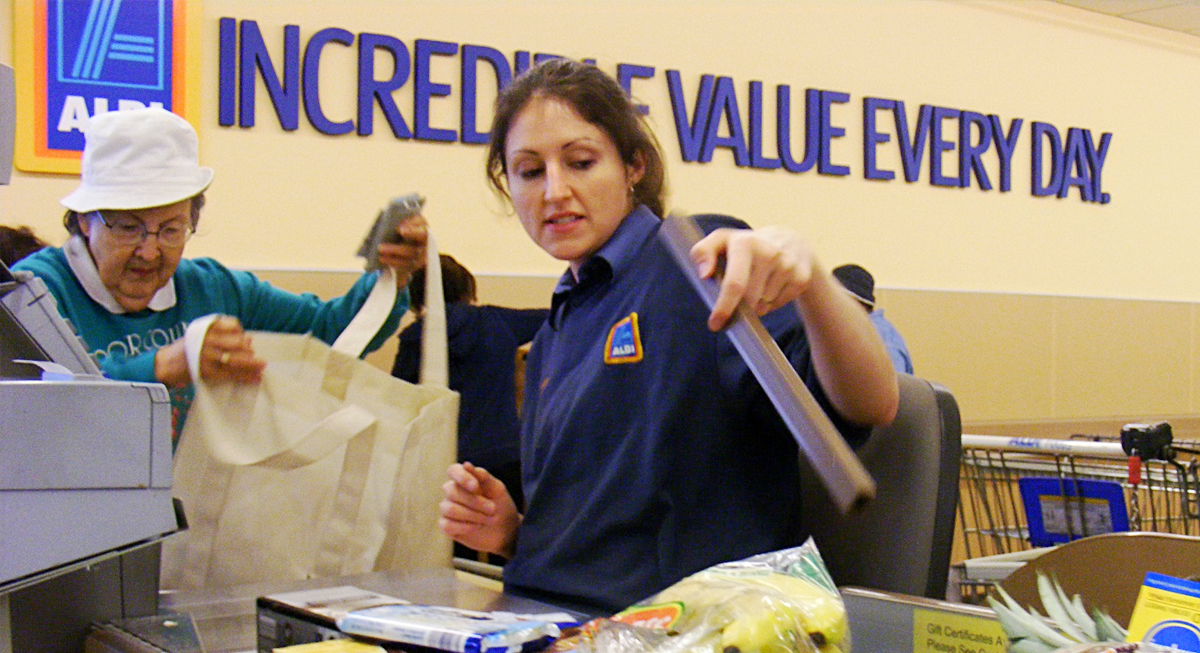Aldi isn’t just another grocery store. It’s a global phenomenon with a loyal fanbase and a reputation for doing things differently. From its no-frills design to its innovative cost-saving strategies, Aldi knows how to deliver quality and affordability in one package. But there’s more to this budget-friendly chain than meets the eye.
Behind its low prices are quirky policies, unexpected origins, and groundbreaking practices that make Aldi truly unique. These surprising facts will give you a new perspective on this grocery giant. Let’s dive in!
Aldi and Trader Joe's Are Siblings
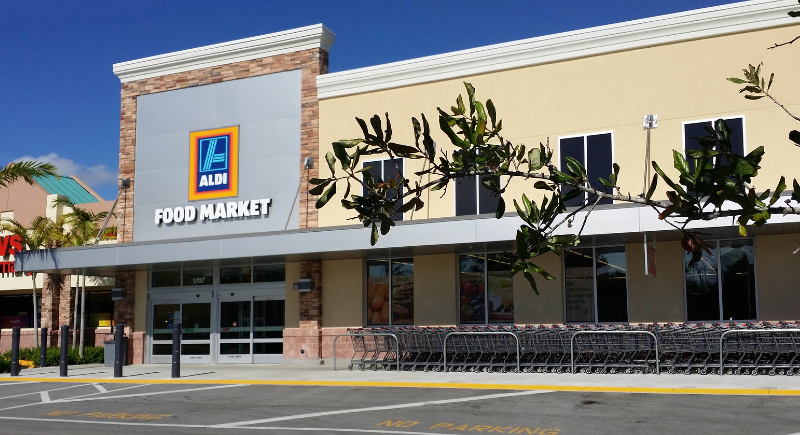
Credit: flickr
Aldi and Trader Joe’s share a unique connection. In the 1960s, the Albrecht brothers, who owned Aldi, decided to split their business over a disagreement about selling cigarettes. Aldi Sud took control of operations in southern Germany and later acquired Trader Joe’s in the U.S., while Aldi Nord continued to operate in the north.
Bring Your Own Bags—Or Pay Up

Credit: flickr
Aldi doesn’t provide free bags. Instead, shoppers are encouraged to bring their own or purchase reusable or paper bags at checkout. This practice reduces waste and keeps operational costs low. The small savings add up, allowing Aldi to pass those benefits on to customers with lower prices.
You Need a Quarter to Use a Cart
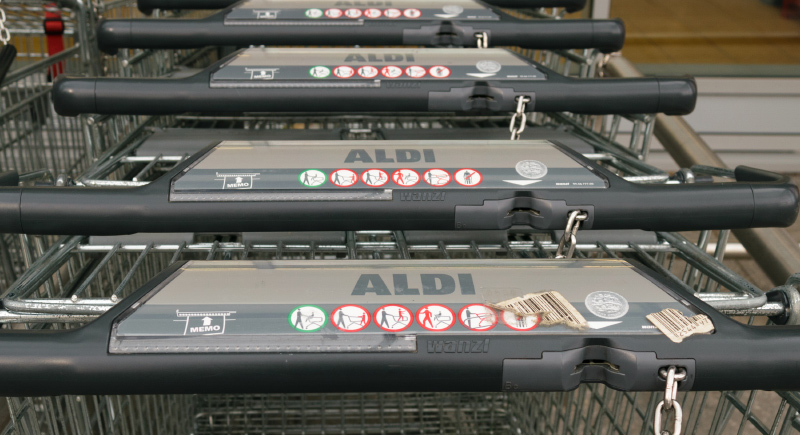
Credit: iStockphoto
Aldi’s innovative cart system requires shoppers to insert a 25-cent coin to release a cart. The deposit is returned when the cart is brought back, which means Aldi doesn’t need to pay staff to collect carts in the parking lot. This simple system keeps parking lots tidy and helps the store save money, reinforcing its low-price strategy.
Aldi Carries More Than 90% Private Label Products
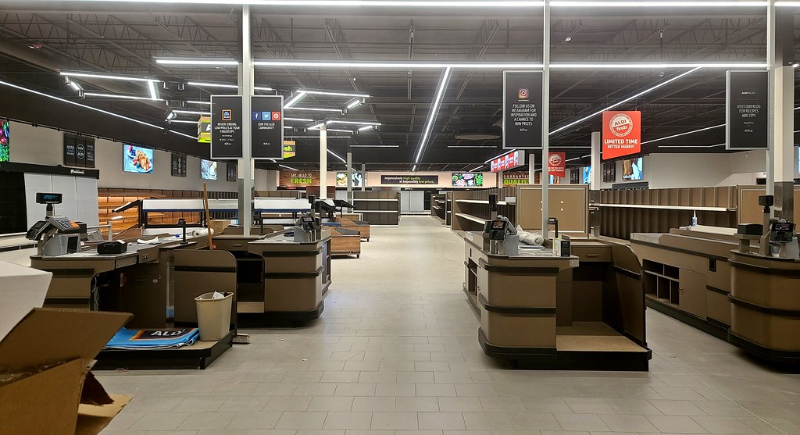
Credit: flickr
Most products at Aldi are private label, which means they’re exclusive to the store. These items are often produced by the same manufacturers behind popular name brands but sold at a fraction of the price. By cutting out brand premiums and fancy packaging, Aldi can focus on delivering quality goods for less, making it a favorite for budget-conscious shoppers.
Aldi’s Stores Are Surprisingly Small
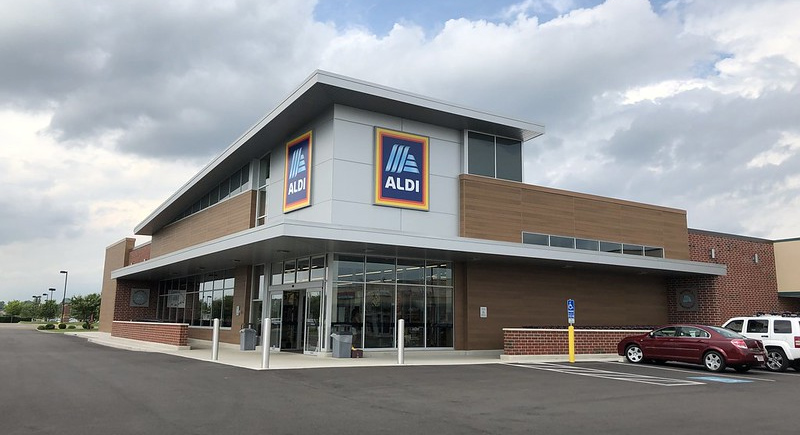
Credit: flickr
Aldi stores are designed for efficiency, with a typical location carrying around 1,400 products compared to over 30,000 at traditional grocery stores. This limited selection ensures faster restocking and makes shopping easier for customers. By focusing on essentials and high-demand items, Aldi keeps overhead costs low and streamlines the entire shopping experience.
Aldi Employees Do It All

Credit: flickr
Aldi takes a multitasking approach with its staff. Employees are cross-trained to handle everything from unloading deliveries to running the cash register, which reduces the need for specialized roles. This model boosts productivity, allowing Aldi to operate with fewer employees while maintaining high levels of service.
Speed Is King at Checkout
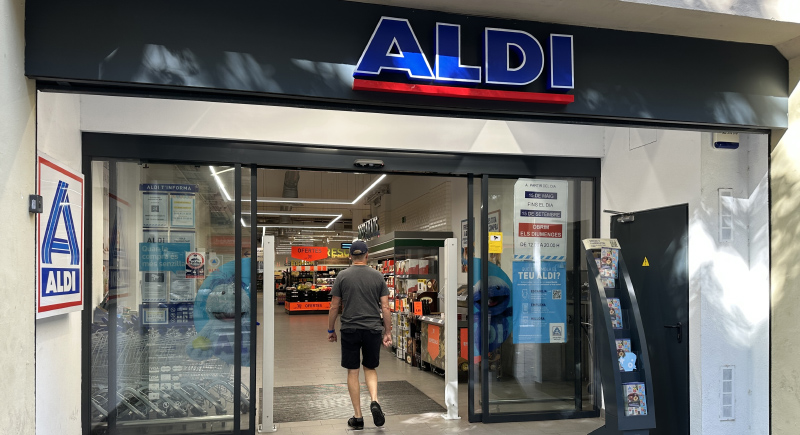
Credit: iStockphoto
Ever wonder why Aldi checkout lanes move so fast? Their products feature multiple barcodes in strategic locations, allowing cashiers to scan items in a flash. Shoppers are also encouraged to bag their groceries at a designated counter rather than at the register, speeding up the process even more.
Aldi Is Big on Sustainability

Credit: iStockphoto
Aldi takes its environmental responsibilities seriously. The chain has committed to reducing plastic packaging, offering more sustainable product options, and investing in energy-efficient technologies. Some stores are even powered by solar panels or use refrigeration systems that minimize energy waste.
The “Aldi Finds” Section Is Full of Surprises

Credit: iStockphoto
Aldi Finds, also known as the “Special Buys” section, is one of the most exciting parts of the store. Each week, Aldi introduces a rotating selection of limited-time items, from gourmet snacks to home goods and seasonal decor. These deals often sell out quickly, creating a treasure hunt experience for loyal shoppers.
Aldi Operates in More Than 20 Countries

Credit: flickr
Although Aldi began as a small shop in Germany, it now operates in over 20 countries, including the U.S., U.K., Australia, and parts of Asia. Each store adapts slightly to local tastes while maintaining Aldi’s core principles of simplicity, affordability, and quality. Its global success demonstrates the universal appeal of its unique business model.
Aldi’s Wine and Cheese Selection Wins Awards
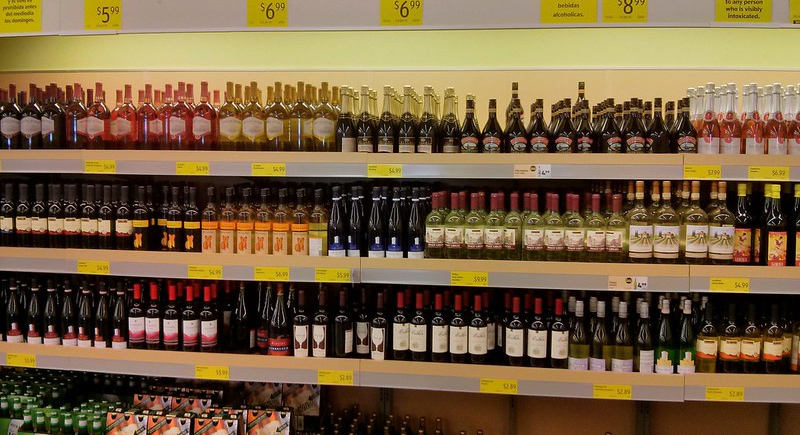
Credit: flickr
Don’t underestimate Aldi’s wine and cheese aisles. Many of these affordable products have won prestigious awards in blind taste tests, often beating out pricier competitors. Aldi’s ability to offer gourmet flavors at budget-friendly prices has earned it a loyal following among foodies and casual shoppers alike.
Aldi’s Stores Are Designed to Save Energy
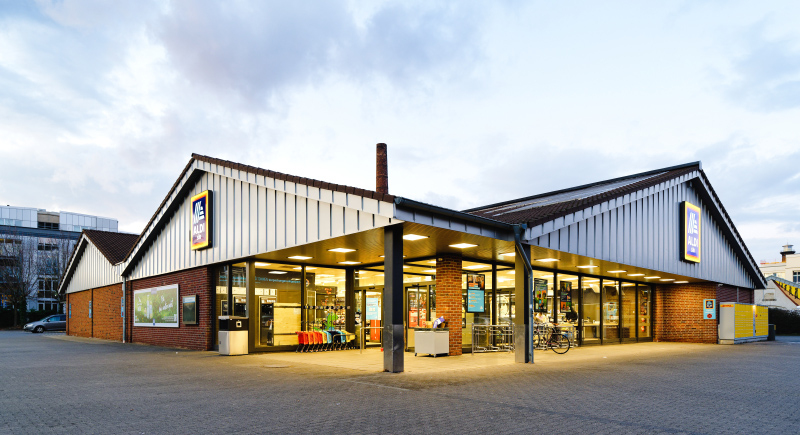
Credit: iStockphoto
Energy efficiency is a key focus for Aldi. Stores feature LED lighting, motion sensors, and energy-efficient refrigeration systems to minimize their environmental footprint. Many locations are designed to maximize natural light, reducing energy consumption further. These practices not only benefit the planet but also help Aldi save on utility costs.
The Company Started in a Small German Town
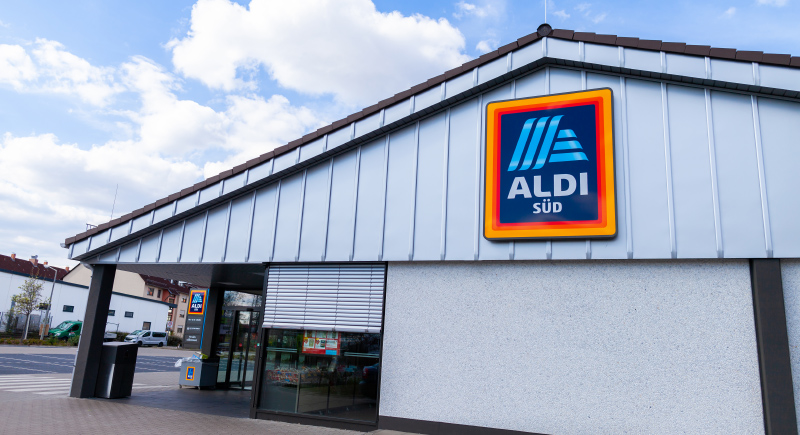
Credit: iStockphoto
Aldi’s roots trace back to a small grocery store in Essen, Germany, opened in 1913 by the Albrecht family. The business grew steadily, eventually revolutionizing the retail industry with its innovative discount model. Aldi’s humble beginnings perfectly showcase its commitment to quality and value over the decades.
Aldi Puts Unusual Limits on Product Choices
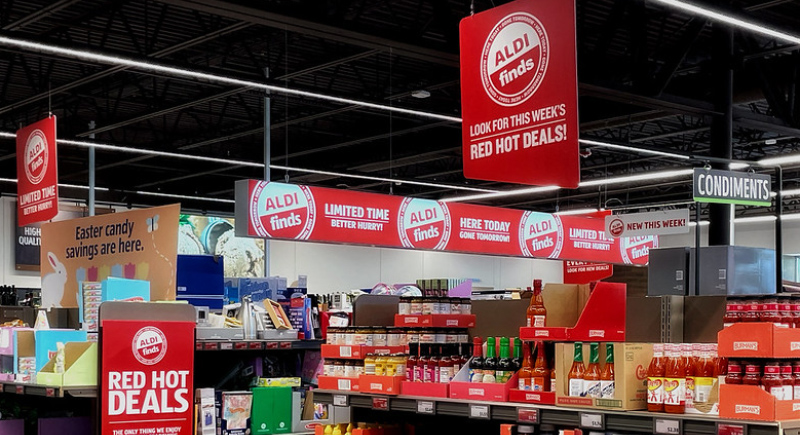
Credit: flickr
Unlike traditional supermarkets, Aldi intentionally limits product options. For instance, instead of carrying 10 different brands of peanut butter, they offer just one or two. This strategy simplifies decision-making for customers, improves inventory management, and allows Aldi to negotiate better deals with suppliers, keeping prices low.
Aldi Is One of the Fastest-Growing Grocery Chains in the U.S.

Credit: flickr
Since entering the U.S. market in the 1970s, Aldi has rapidly expanded its footprint. With plans to open hundreds of new stores in the coming years, Aldi is becoming a household name for millions of Americans. Its combination of affordability, efficiency, and quality has reshaped how shoppers approach their weekly grocery trips.

